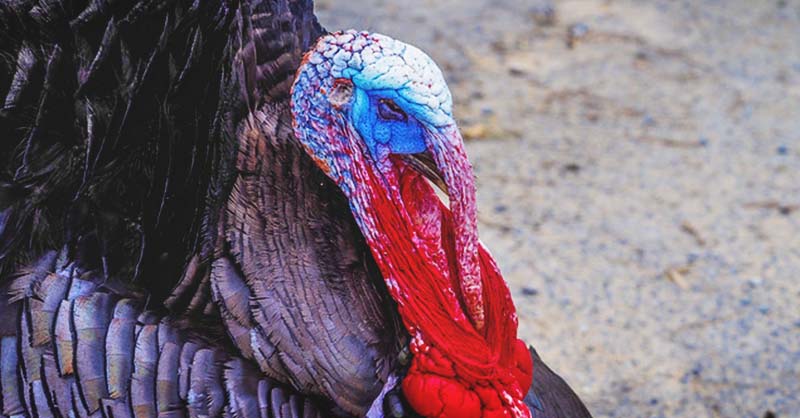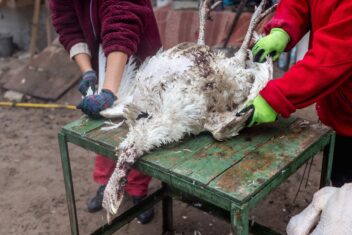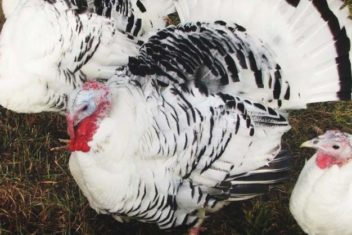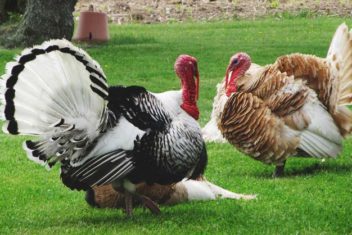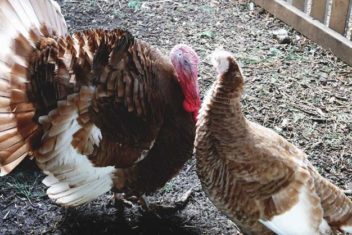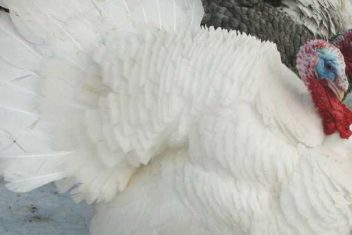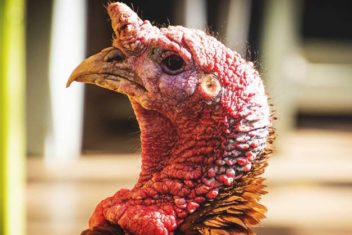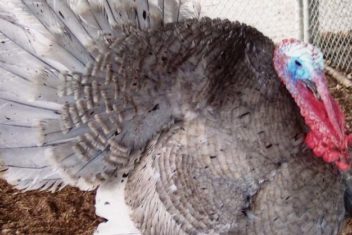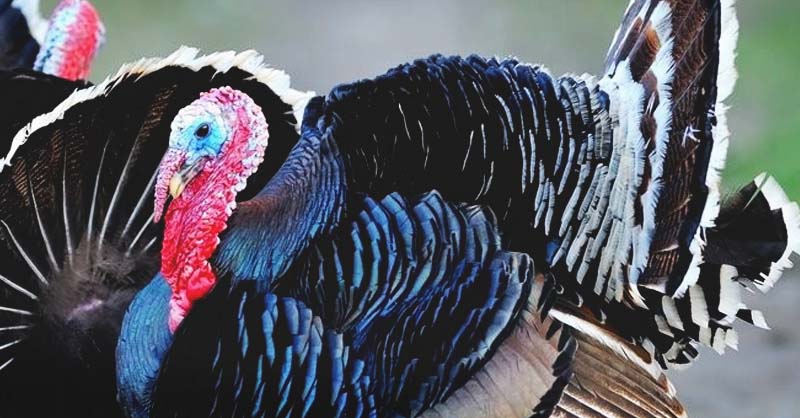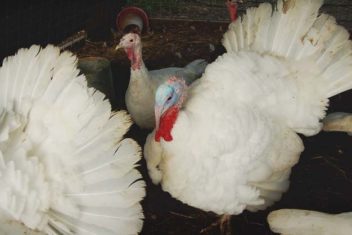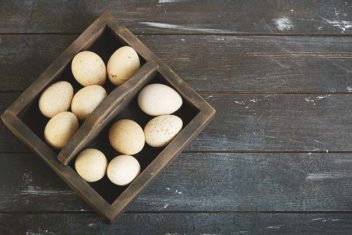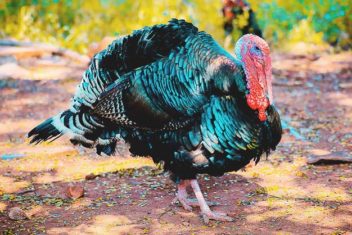Black Turkeys have been used in the breeding of many varieties of other turkeys. However, the original Black Turkey breeding standards have not been upheld over years of breeding and are rapidly declining in quality and popularity.
For the avid turkey breeder, small homesteader, or poultry fancier, the Black Turkey works for many reasons.
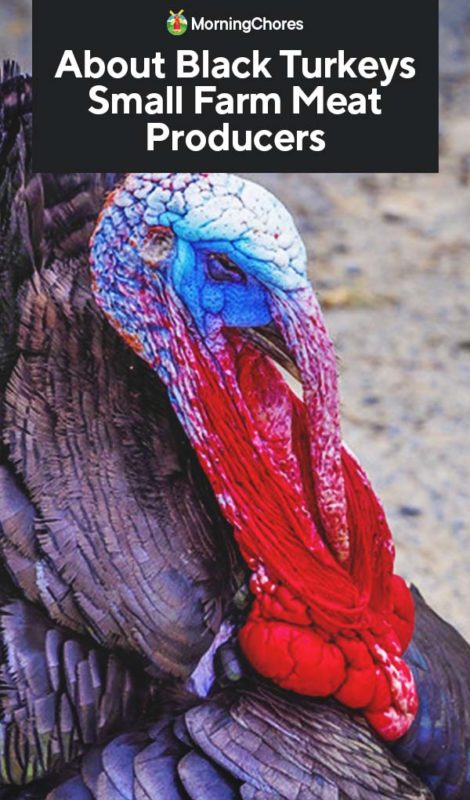
About Black Turkeys
In the 1500s, explorers returned to England with turkeys from Mexico. The bird was selectively bred for meat production for two centuries and was given many names in the process.
When the early American colonists came over, they brought along this turkey. Upon arrival, this variety was crossed with the Eastern Wild turkeys, resulting in the Black Turkey we have today.
In 1874, Black Turkeys were accepted into the American Poultry Association.
Black Turkey Characteristics
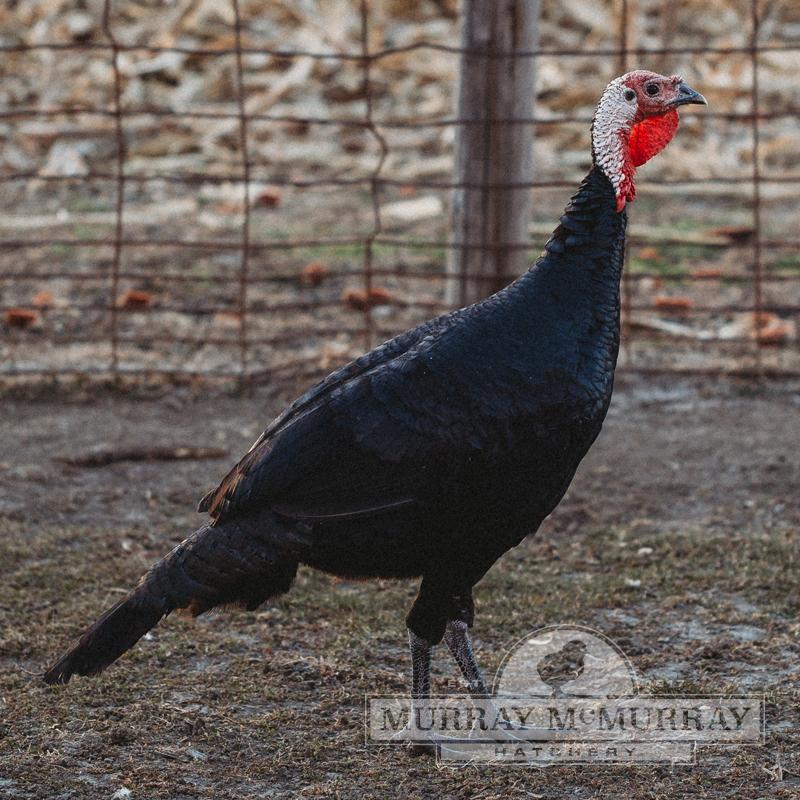
1. Size and Weight
Due to the poor breeding in the past several decades, weight for Black Turkey depends largely on the breeding lines. According to the breed standard, an ideal weight for Blacks is 23 pounds for a young tom. Black Turkey hens weigh in at around 14 pounds for young hens.
2. Temperament
Black Turkeys should be docile and calm birds, but they can occasionally be aggressive. Temperament can vary drastically and breeder selection will affect the outcome of these birds.
3. Meat Production
In this variety’s heyday, it was a good producer of flavorful meat. Meat quality from this bird is still good, but some lines have better meat producers than others. If the birds come from lines with larger turkeys, you should have a nicely dressed out bird of good size.
4. Egg Production
Egg production with turkeys is not the highest and is definitely the reason why the primary use for turkeys is meat and not eggs. However, turkey eggs are large and make for good eating. Turkey laying season is not as long or consistent, so consider them a nice bonus to turkey keeping when you do get them.
Caring for Black Turkeys
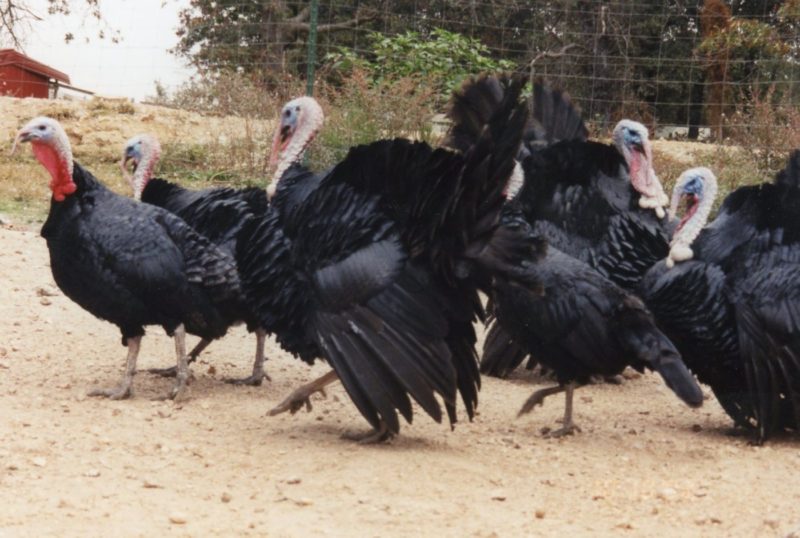
1. Feeding and Nutrition
Turkey chicks (also known as poults) grow very quickly and need high protein to support their growth. A 30% starter is ideal, transitioning to a 20% flock raiser at 8 weeks of age.
Turkeys being raised for meat processing can remain on the flock raiser until it comes time for butchering. If you are keeping breeding birds or egg layers, turkey hens need to be placed on a game bird laying feed during laying season. When hens are not laying, the entire flock will do just fine on flock raiser.
2. Housing and Fencing
As larger birds, turkeys do well free ranging because they avoid aerial predators due to their large size. If you choose to keep them enclosed, half an acre needs to be allocated for every twelve turkeys.
Inside coops, make sure to have 8-10 square feet per turkey to ensure everyone has adequate spacing. Roosts need to be no more than 12-18 inches off the ground so that jumping down every morning does not cause leg or feet issues.
3. Health Issues and Care
There is a set of health issues that all turkeys can deal with, but the Black Turkey is not overly susceptible to any specific problems. As a turkey owner, it’s a good idea to familiarize yourself with common (and less common) health issues to be an informed turkey keeper.
Beware of the risks with mixing different poultry types such as chickens and turkeys. Chickens can carry blackhead, which will affect turkeys much more than it affects chickens. With mixed flocks, turkeys can be more vulnerable to getting sick from blackhead.
4. Breeding
Turkeys do not lay eggs as consistently as chickens might, so the breeding season for turkeys could be short. Black Turkeys have the ability to mate naturally, unlike some larger varieties in the turkey world. In contrast to chickens, turkey eggs take 28 days to hatch instead of a chicken’s 21 days.
Variety Alternatives
1. Bourbon Red Turkeys
Bourbon Red Turkeys are also a heritage variety well suited to homestead living. This turkey is majestic and kingly in appearance and a good meat producer for small farms. The Bourbon Red is also an endangered breed that would make a fantastic hobby breeder just like the Black Turkey.
Did You Know?
In the wild, the main predator of turkey eggs is skunks! When it comes to the coop, anything that can get in will enjoy some tasty eggs if they don’t get their paws on the turkeys first.
The Black Turkey is also considered the oldest variety of turkey in the UK.
The Black Turkey makes a well rounded and practical bird for the homesteader that likes a bird with history. A perfect addition to many a flock, you won’t regret adding this bird to your farmyard.

